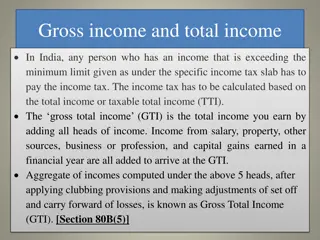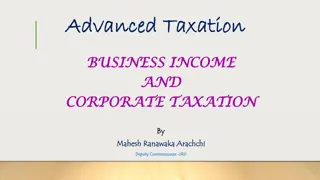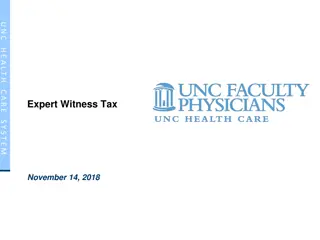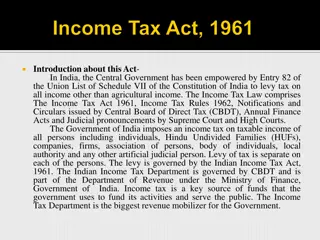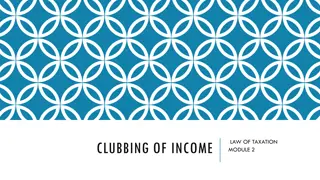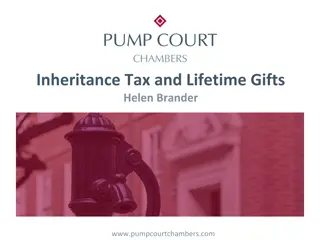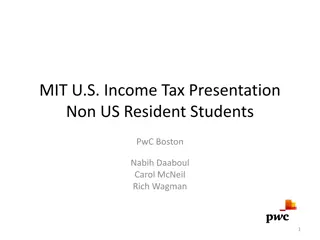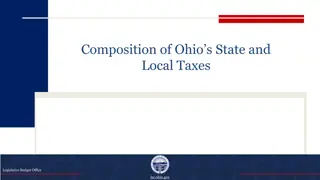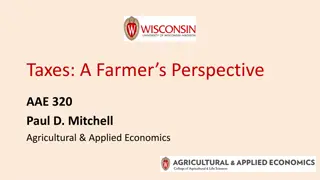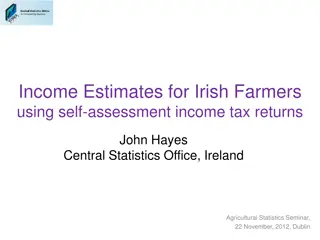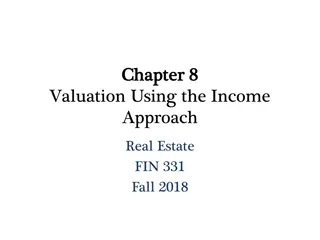Understanding the Basics of Income Tax on Death for Estate Planning
This informative content explores the essentials of income tax implications upon death, including notional sales triggering capital gains, inclusion of income in the deceased's final tax return, and considerations for minimizing tax burdens. It also highlights which assets trigger income tax on death and strategies for tax deferral. Valuable insights are provided for individuals seeking to plan their estate effectively while minimizing tax obligations.
Download Presentation

Please find below an Image/Link to download the presentation.
The content on the website is provided AS IS for your information and personal use only. It may not be sold, licensed, or shared on other websites without obtaining consent from the author. Download presentation by click this link. If you encounter any issues during the download, it is possible that the publisher has removed the file from their server.
E N D
Presentation Transcript
Income Tax - Part I What your Client needs to know With Ian Hull, Suzana Popovic-Montag and Jordy Atin
Retainer Limits What advice are you giving about income tax? I confirm that I am not retained to provide you with any income tax planning advice regarding your estate plan. If you are concerned about income tax planning for your estate, I recommend considering retaining a tax specialist to provide you with advice in this regard.
Fundamentals of How Income Tax Works on Death 1. Death triggers notional sale of asset. 2. That sale triggers capital gains if value of asset has increased. 3. The capital gain triggers inclusion of income in the deceased s final tax return @ 50% of the capital gain 4. That income triggers income tax at the deceased s marginal rate. 5. The payment of income tax comes from the residue of the estate unless the Will contains a contrary intention.
Not All Assets Trigger Income Tax on Death Examples: Non-Appreciating Assets: Cash Fixed Income Investments Exempt Assets: Principal Residence (only 1) Life Insurance
Full Value Assets Full Value of Asset is Included as Taxable Income RRSP RRIF Some Lump Sum Pension Death Benefits As if Client withdrew the entire amount at death
The Most Common Deferral Defers the notional trigger of sale on death until: Actual Sale of Asset or Death of the Spouse. 1. Gift of Asset to the Spouse Absolute 2. Transfer of Asset into a Qualifying Spouse Trust a. Held for the rest of the lifetime of the spouse. b. Spouse is entitled to get all income from the asset. c. No one but the spouse can have access to the capital of the asset until spouse dies.
Other Considerations Wishes first, income tax deferral second? Burden of income tax on the residuary beneficiaries Assets with highest taxes to the spouse Consider income tax burden on recipient spouse Consider whether sale expected quickly after death Rollover only defers until sale/death- does NOT avoid Assets with no tax to non-spouse beneficiaries Making an asset joint does NOT defer income tax



![Town of [Town Name] Real Estate Tax Rates and FY 2024 Budget Summary](/thumb/62211/town-of-town-name-real-estate-tax-rates-and-fy-2024-budget-summary.jpg)

